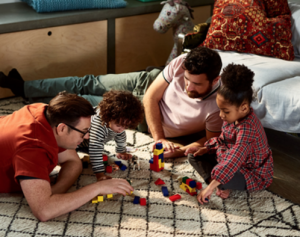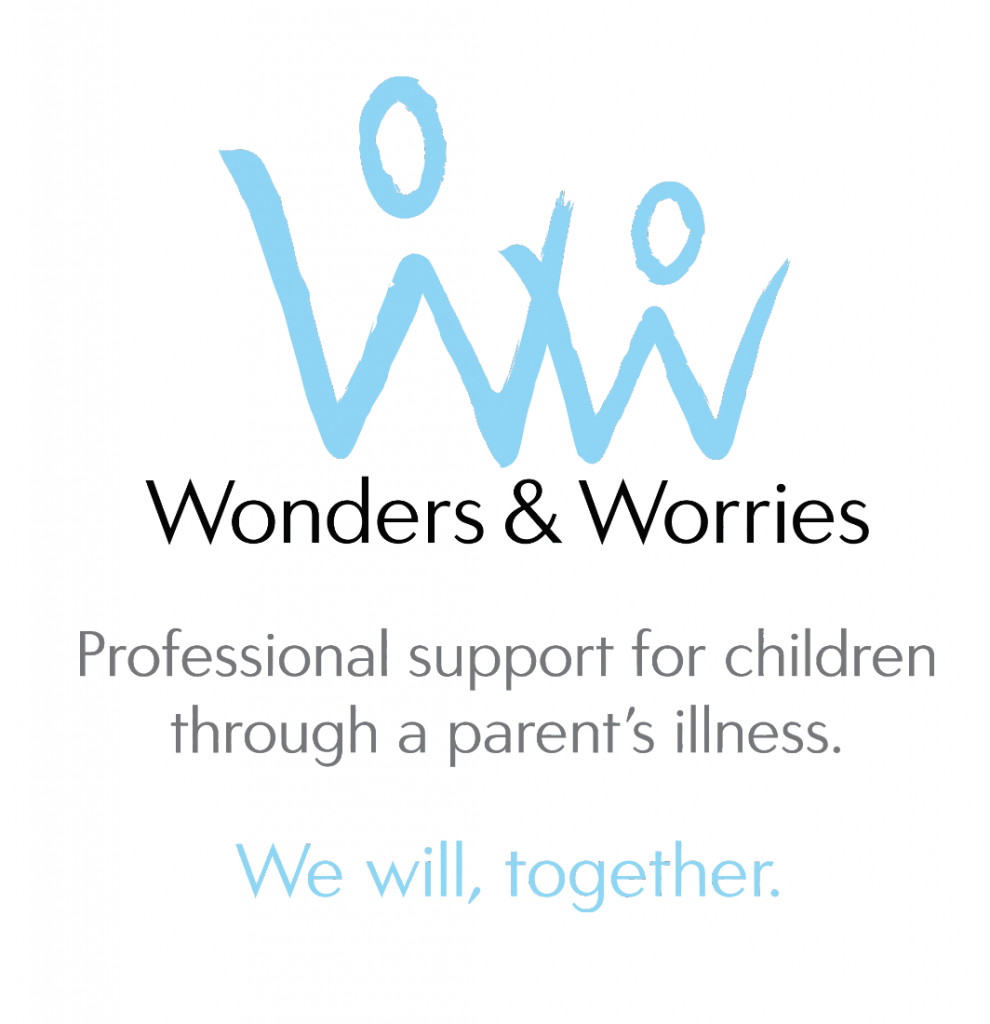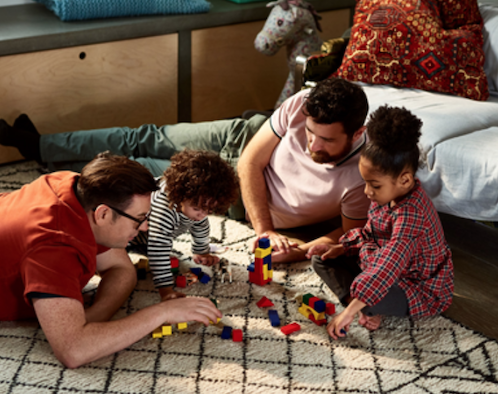
Planning Conversations with Children
Many parents wonder if, when, and how to talk to their children about a cancer diagnosis. Talking to children soon after the diagnosis creates a sense of inclusion and trust. Consistently using honest, developmentally appropriate, and clear language will be the basis for developing your communication plan.
Please use this document in combination with: Talking to Children About a Parent’s Illness to learn more about general pre-conversations considerations, developing an initial communication plan, and for other supportive strategies when discussing illness with children.
Child Friendly Definitions:
- Oncologist: A doctor who takes care of patients with cancer.
- Cells: Very small units that make up every living thing, including the human body.
- Chemotherapy: Anti-cancer medicines to treat cancer.
- Radiation: High energy, invisible, waves that can pass through most parts of the body to damage cancer cells.
- Side effect: An extra change to the body that is caused by the treatment.
- Remission: All signs of cancer are gone in the body.
*Reference KidsHealth.org for more ideas on how to communicate medical terms to children. Wonders & Worries has also created a handout, which can be used as well: Explaining a Cancer Diagnosis [English] | Explaining a Cancer Diagnosis [Spanish]
Teaching Kids About Cancer
Conversation Outline:
1
Tell your story and explain what cancer is in child-friendly terms.
Use the word “cancer.” This is important so children understand that this is a different type of illness than a more common illness. Explain the key events or symptoms that led to your diagnosis.
“I have been coughing a lot and haven’t been feeling well over the last few weeks. I went to my doctor and had an MRI, along with some blood tests. They found that I have lung cancer.”
“Our bodies are made up of cells. Cells are building blocks in the body. Healthy cells have a job in the body. Cancer cells do not have a job in the body. They get in the way of healthy cells doing their jobs. They can grow and spread if not treated.”
Discuss how cancer has impacted life – such as whether the symptoms are mild or more noticeable.
“I’ve been going to appointments to figure out what the treatment plan is going to be.”
Let them know that cancer is not contagious and that no one is at fault. Children worry less when they can make sense of what is happening around them.
“You cannot catch cancer. It’s not like a cold or the flu, but I will need help from doctors for a little while to help manage this illness.”
2
Learn what your child may already know about cancer.
Through better understanding what your child knows, this will help you know where to continue the conversation and may also highlight potential misconceptions:
“Have you ever heard the word cancer?”
“What do you know about cancer?”
3
Clarify any misconceptions that may arise.
A misconception is a misunderstanding that can happen when children or teens put things together in a way that makes sense to them, but with misinformation. Many children think they caused their parent’s illness or that they could have prevented it in some way. Reinforcing these points will be helpful:
“Cancer is not contagious.”
“You may have heard that sometimes people with cancer die, but most people with cancer live. I am going to do everything I can to help my body get better.”
4
Focus on what is happening now.
Explain current symptoms and physical changes. Prepare your child for the next step in treatment – medications, physical, speech, or occupational therapy.
“Right now, I feel mostly okay. On Thursday, I will start taking chemotherapy. Chemotherapy helps to get rid of cancer cells. I may feel sick, and my hair may fall out while I am getting this medicine, but this is normal.”
5
Discuss changes the child is experiencing.
Children want to know how your diagnosis affects them. Talk about their routine: what will stay the same and what will change.
“You will still go to school, soccer practice, and piano lessons. Our friends and neighbors will drive you when I cannot.”
6
Discuss changes the family may experience.
Cancer is different from person to person. Let your child know that their parent may require medical care at different points to help manage the disease. The level of care will depend on the illness.
“When I’m receiving treatment, we may have people helping us in different ways, especially when I’m feeling sick. We will let you know what to expect each day so there aren’t any surprises.”
7
Repetition is key.
This is the first of many conversations about your diagnosis and treatment. You do not have to cover everything or get it all right in one conversation. Create a routine for sharing updates and provide opportunities for children to ask questions and express concerns.
“I know you have more questions, but I think it would be good to take a break. Let’s plan on a time to meet weekly so I can answer more questions and we can have devoted time to catch you up on any changes happening in my treatment plan.”
“That is a great question. I don’t know the answer to that right now, but I have a doctor’s appointment on Friday. I’ll be sure to ask, and we can talk about it on the drive home from school. Sound okay?”
We are continually here to support you as you navigate the best plan for including your children throughout this medical situation. Children have the capacity to thrive despite challenges when given honest information and individualized support. We will, together.
To speak with a child life specialist at Wonders & Worries about this topic or others, please contact the helpline (1-844-WE-WONDER | [email protected]).

